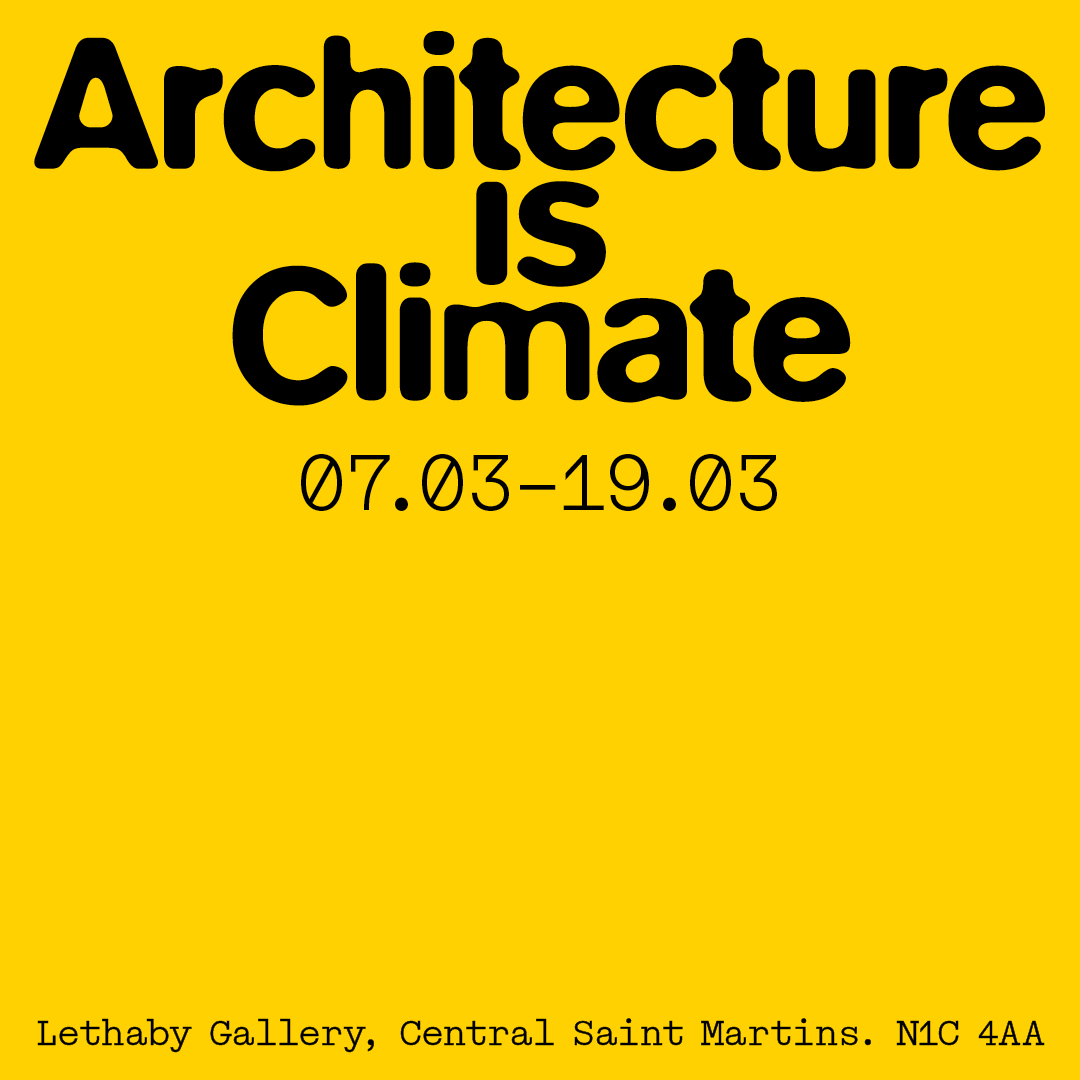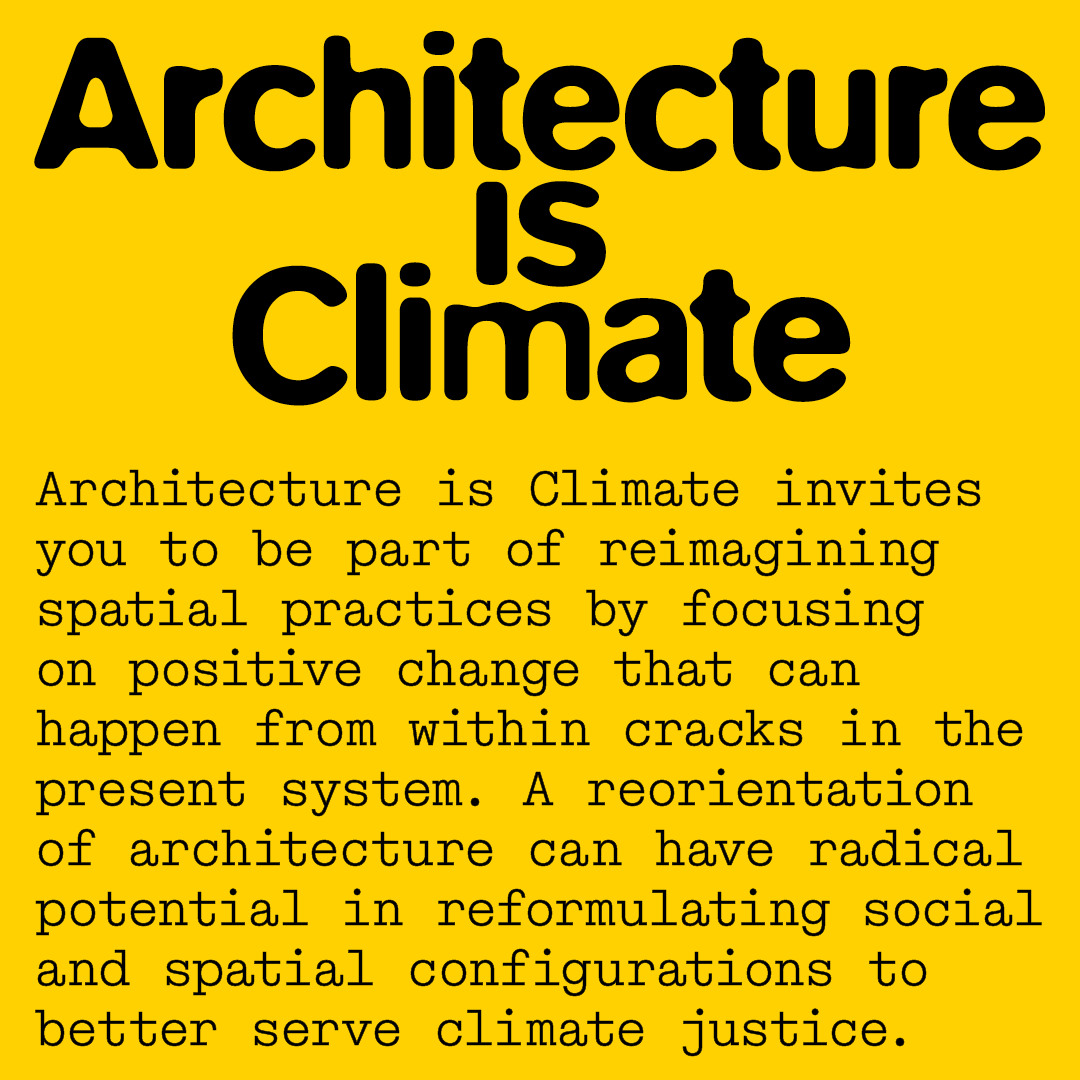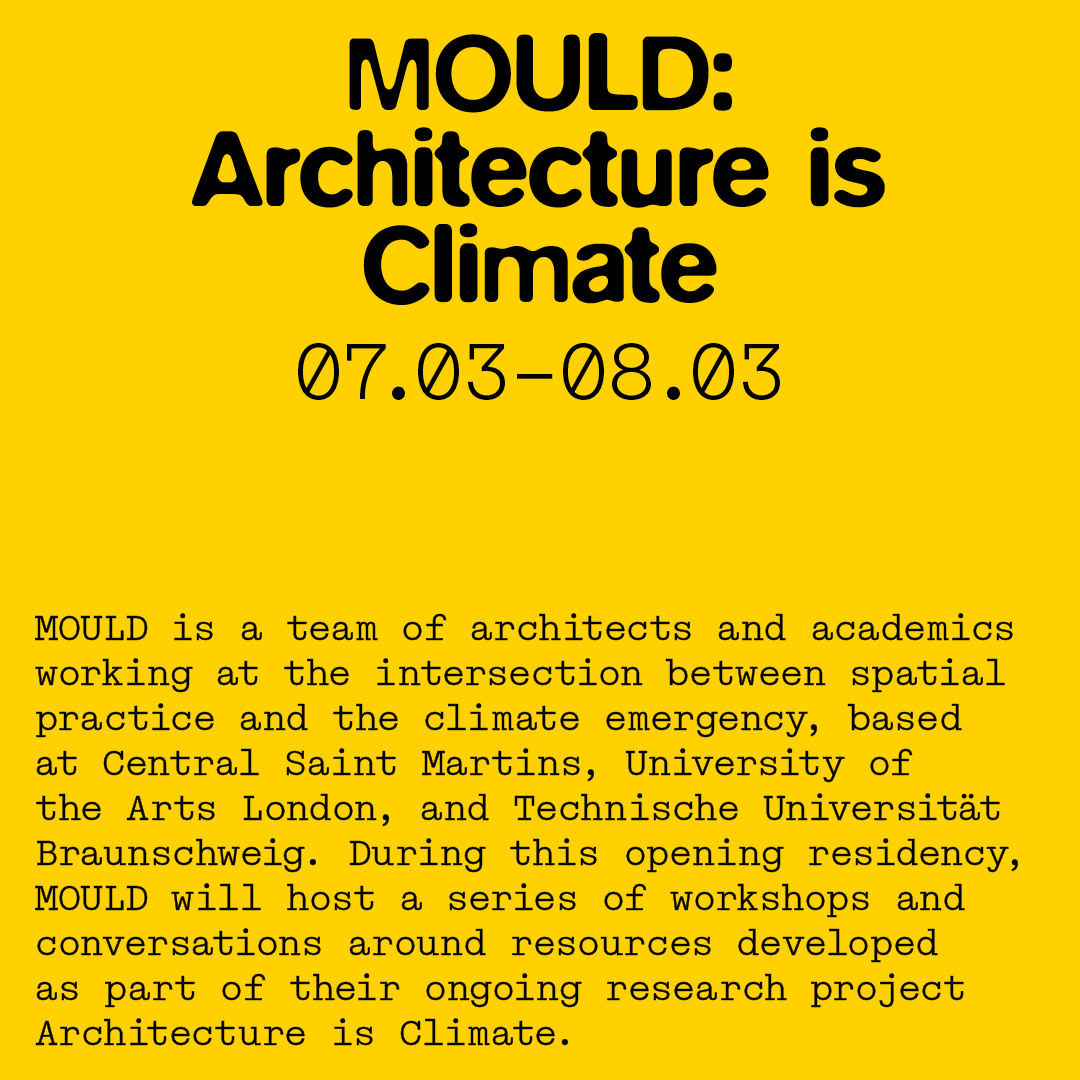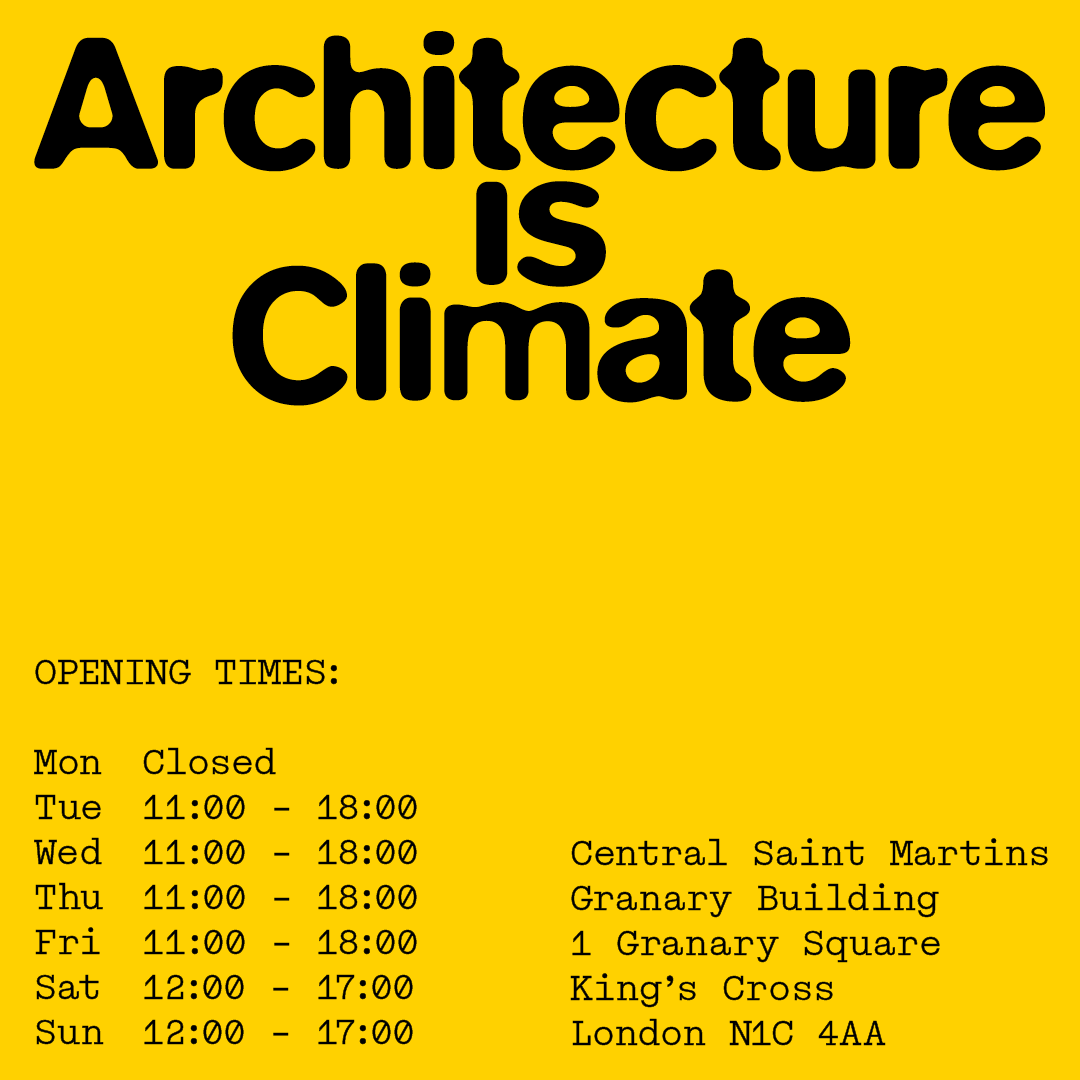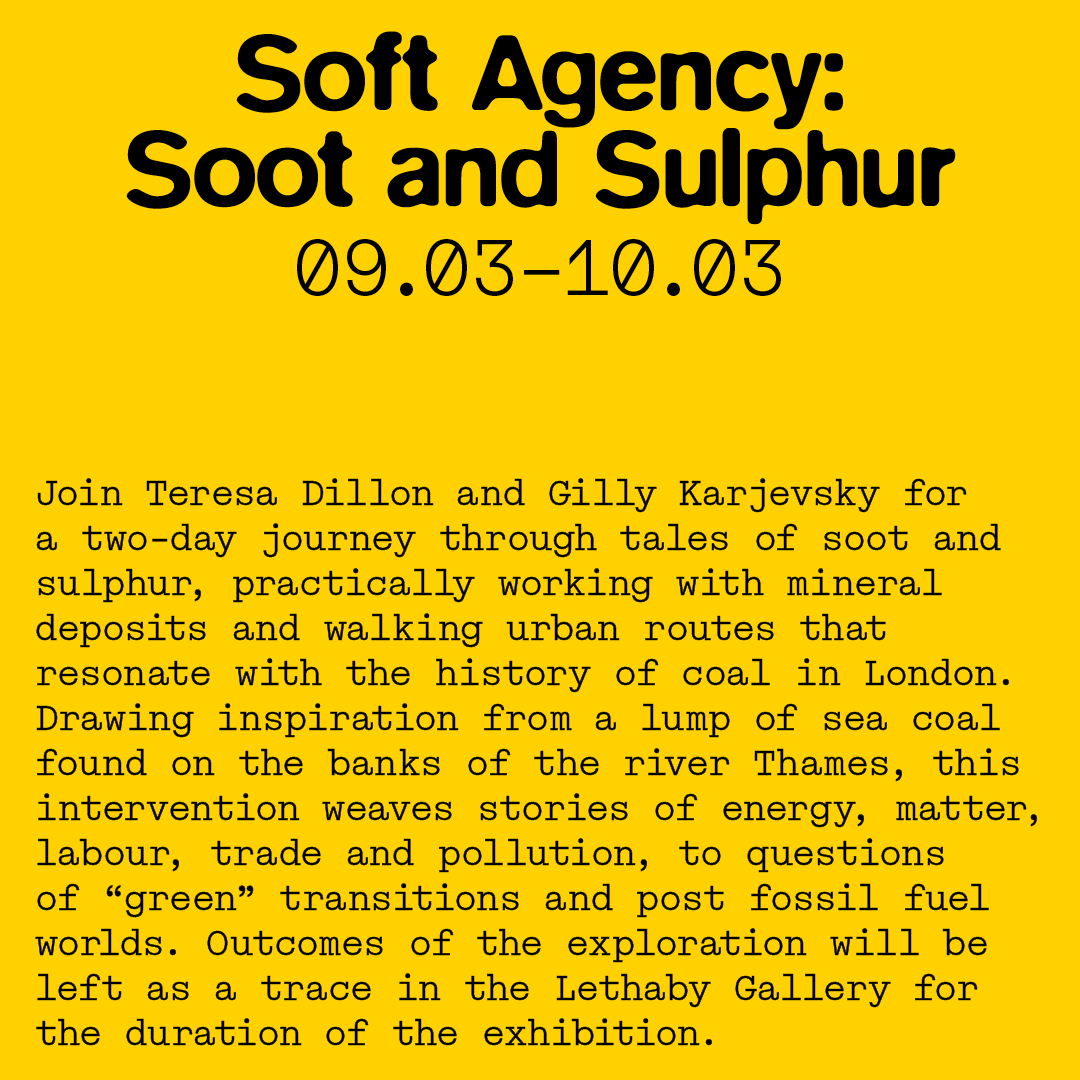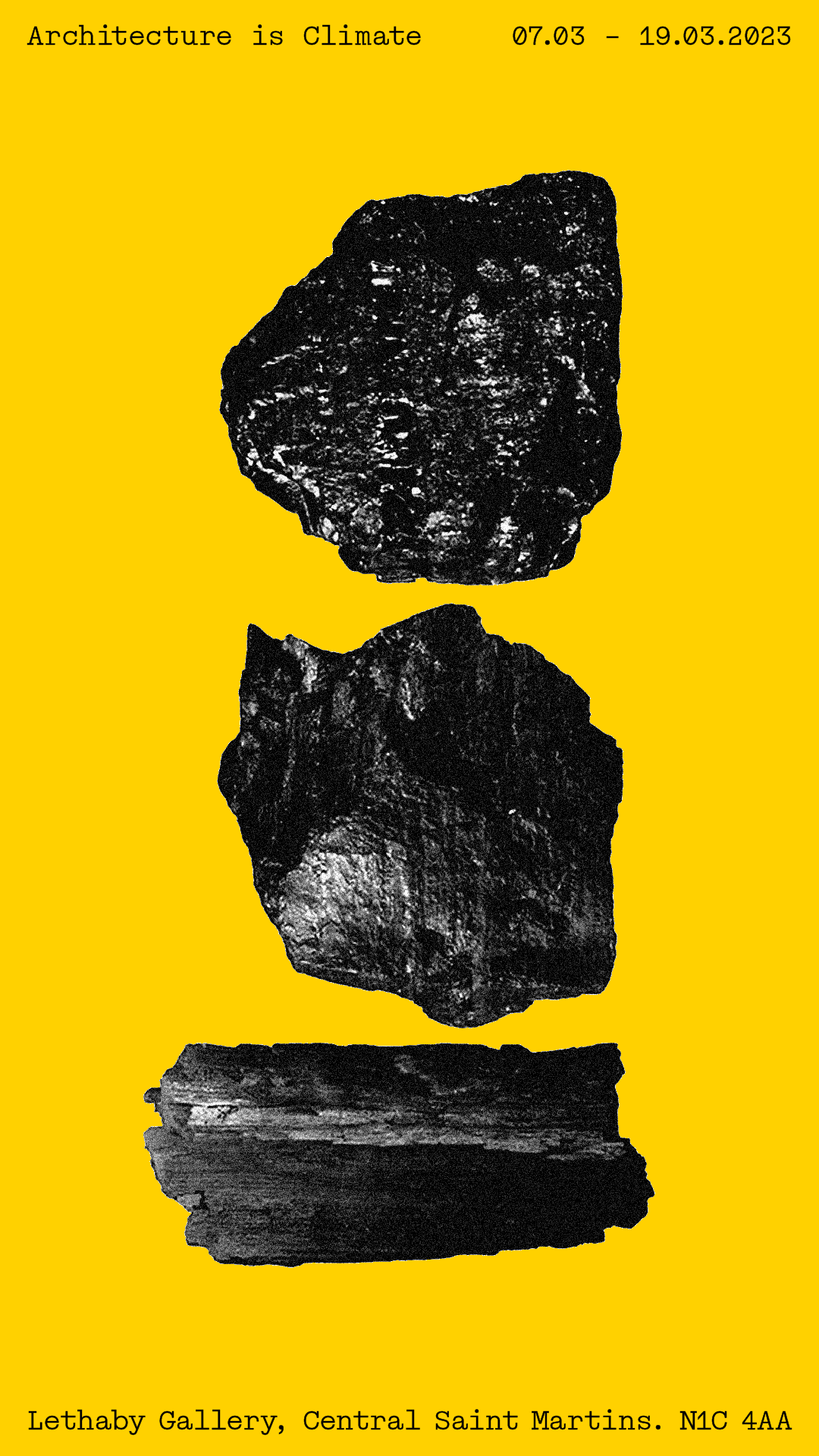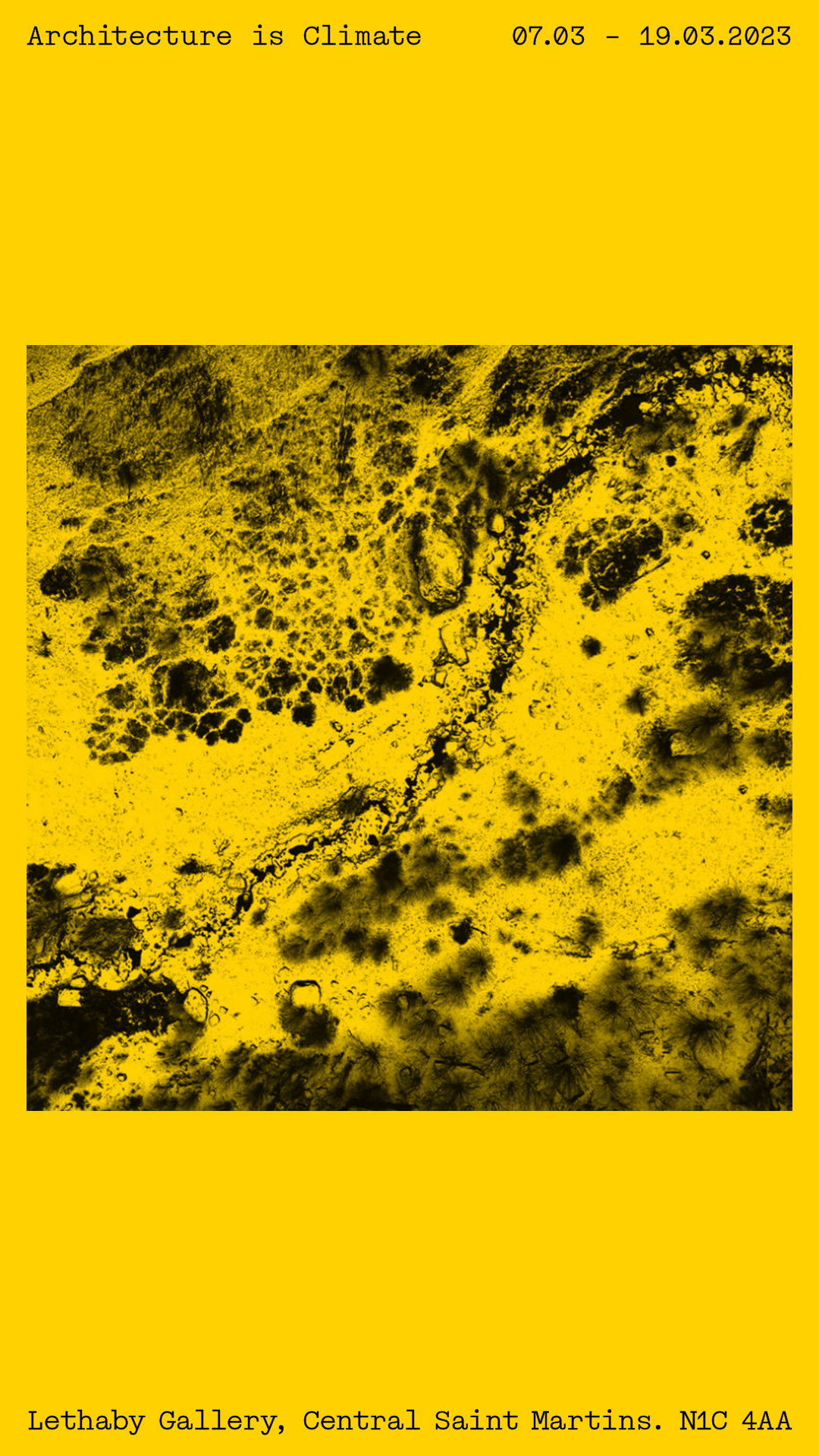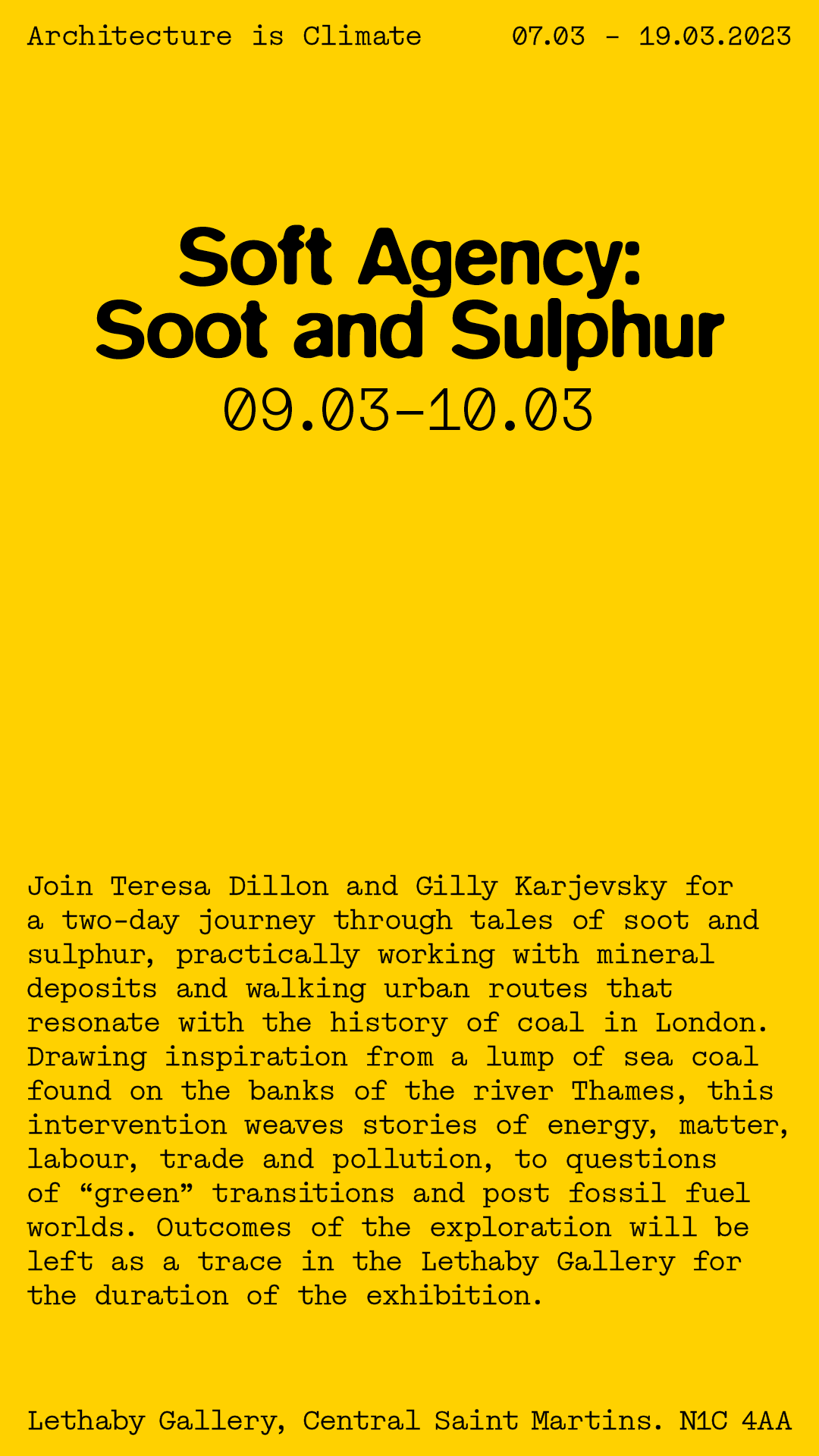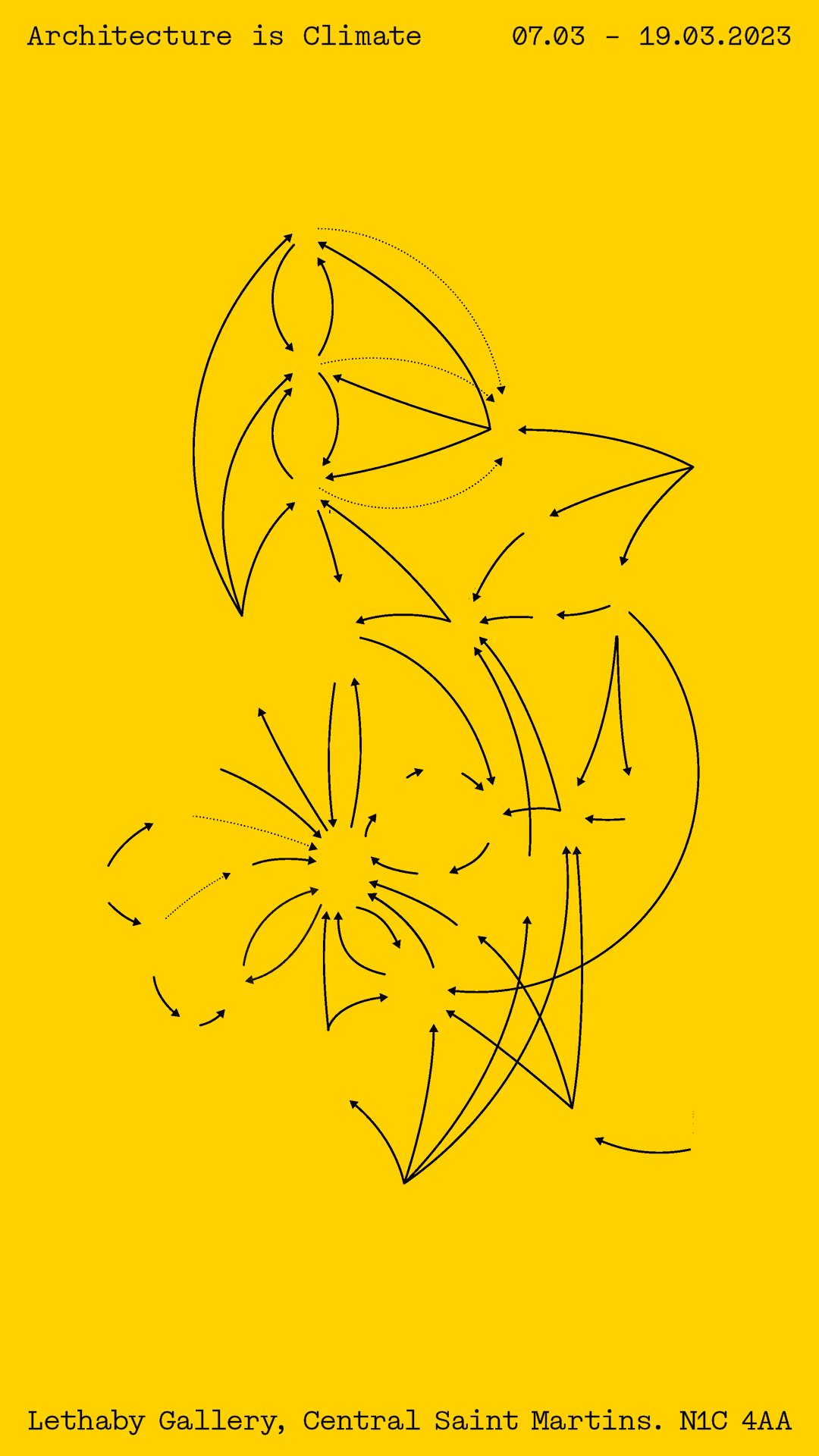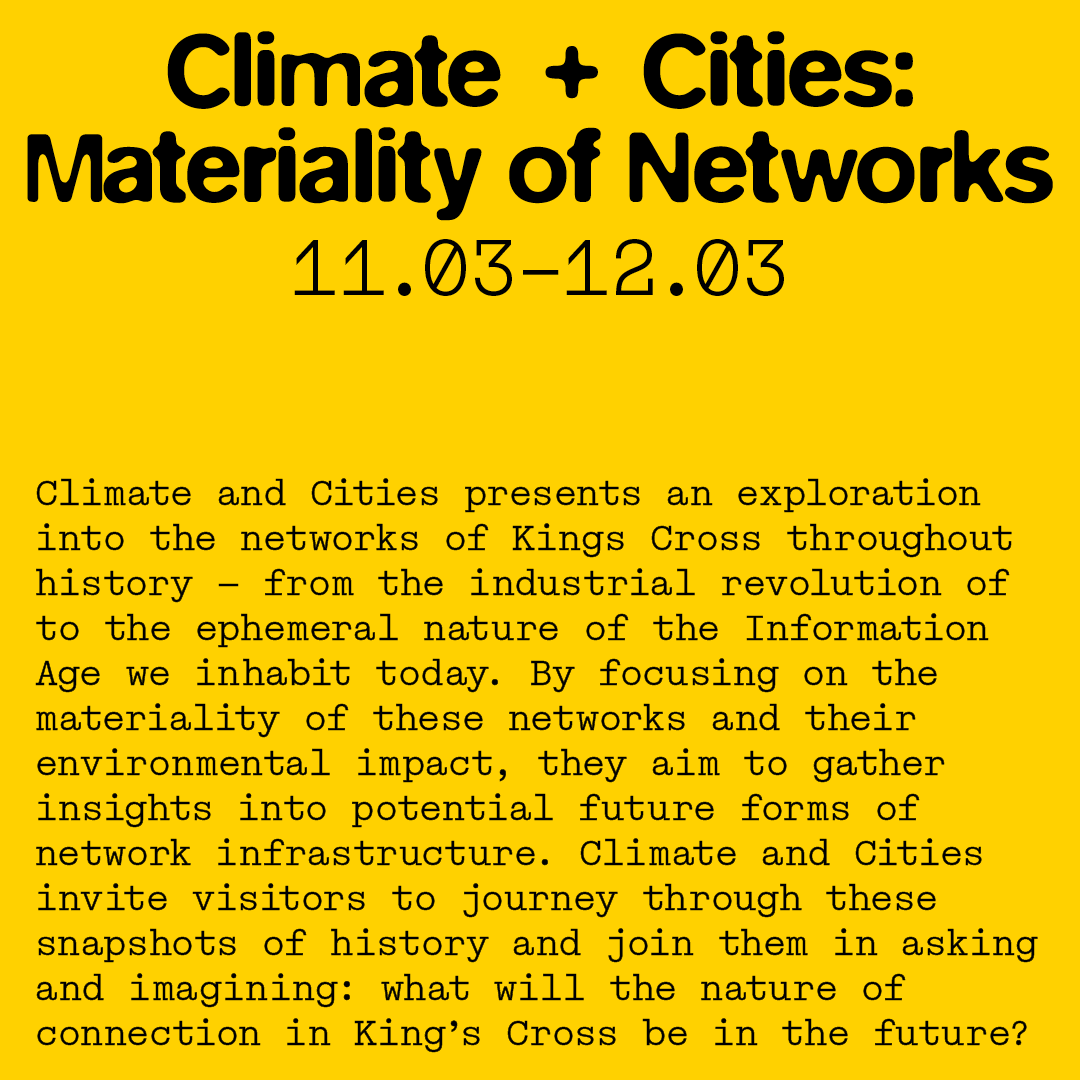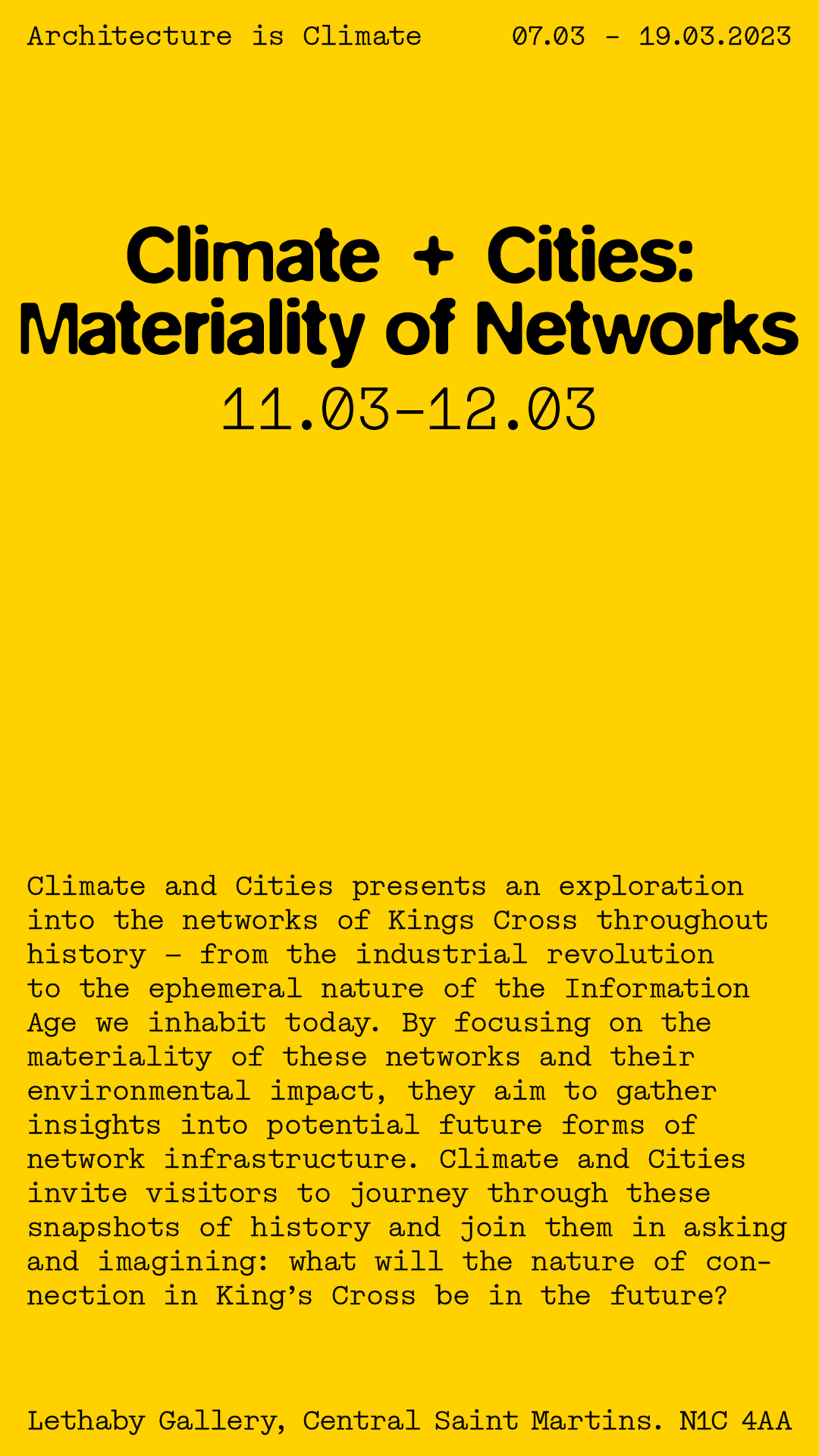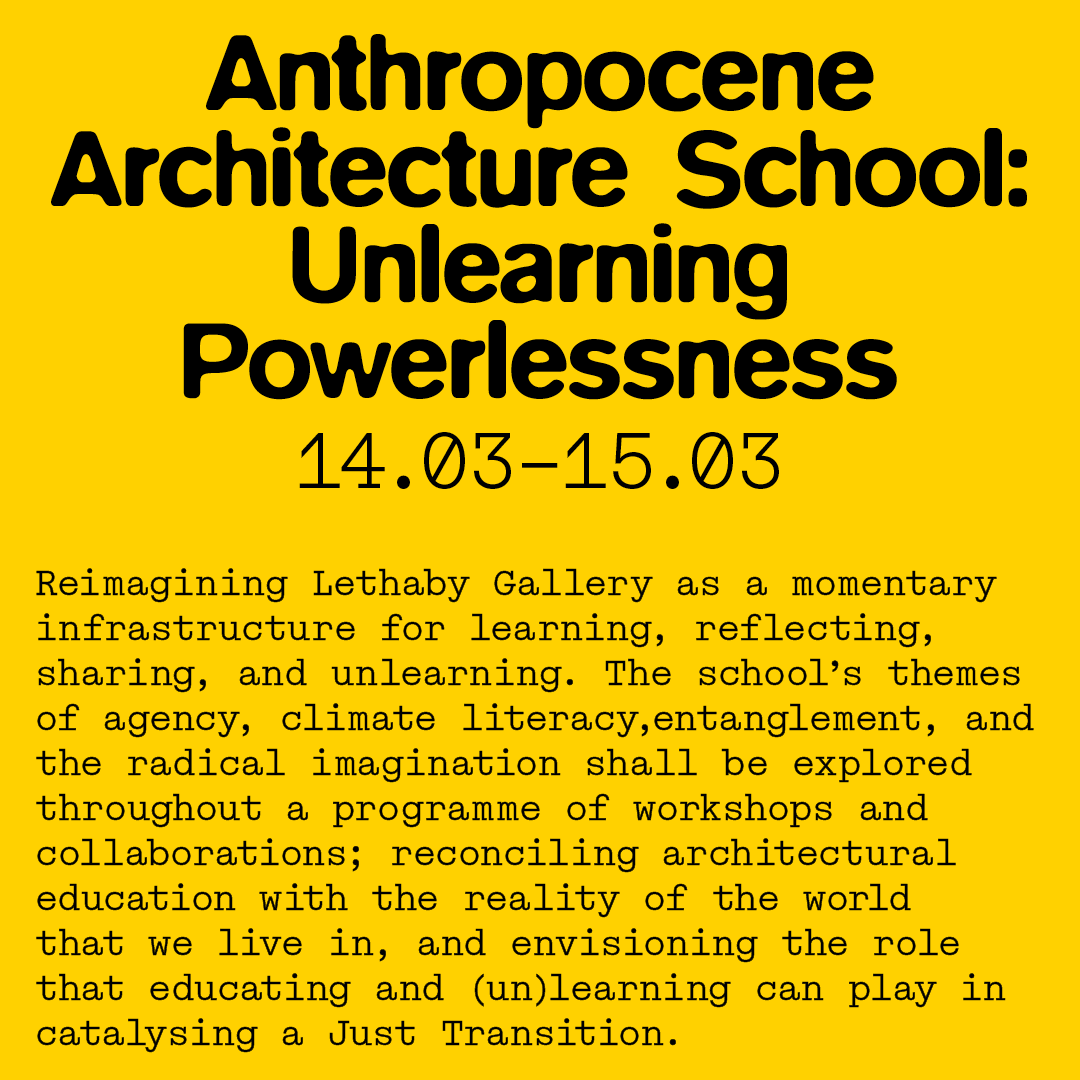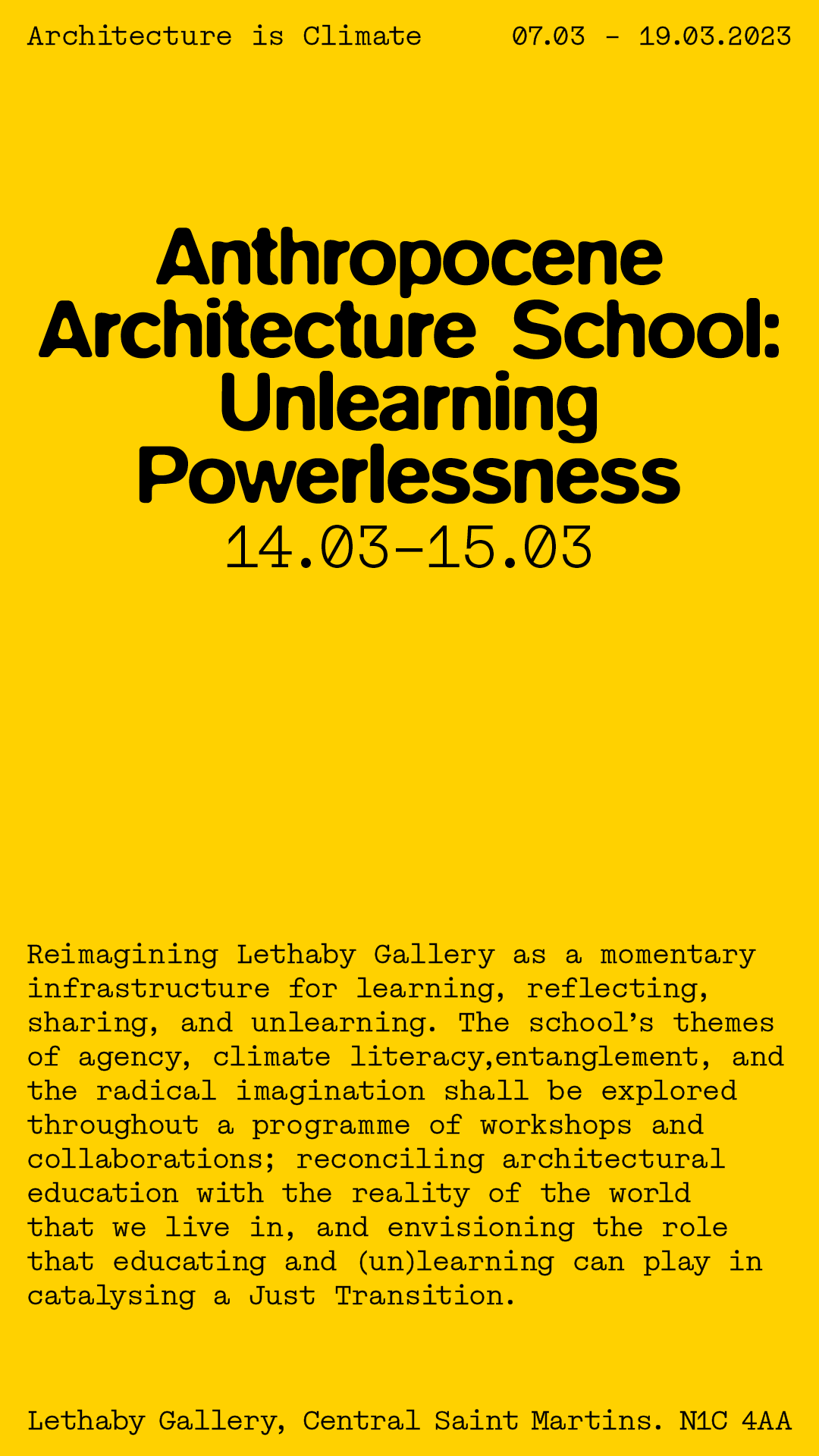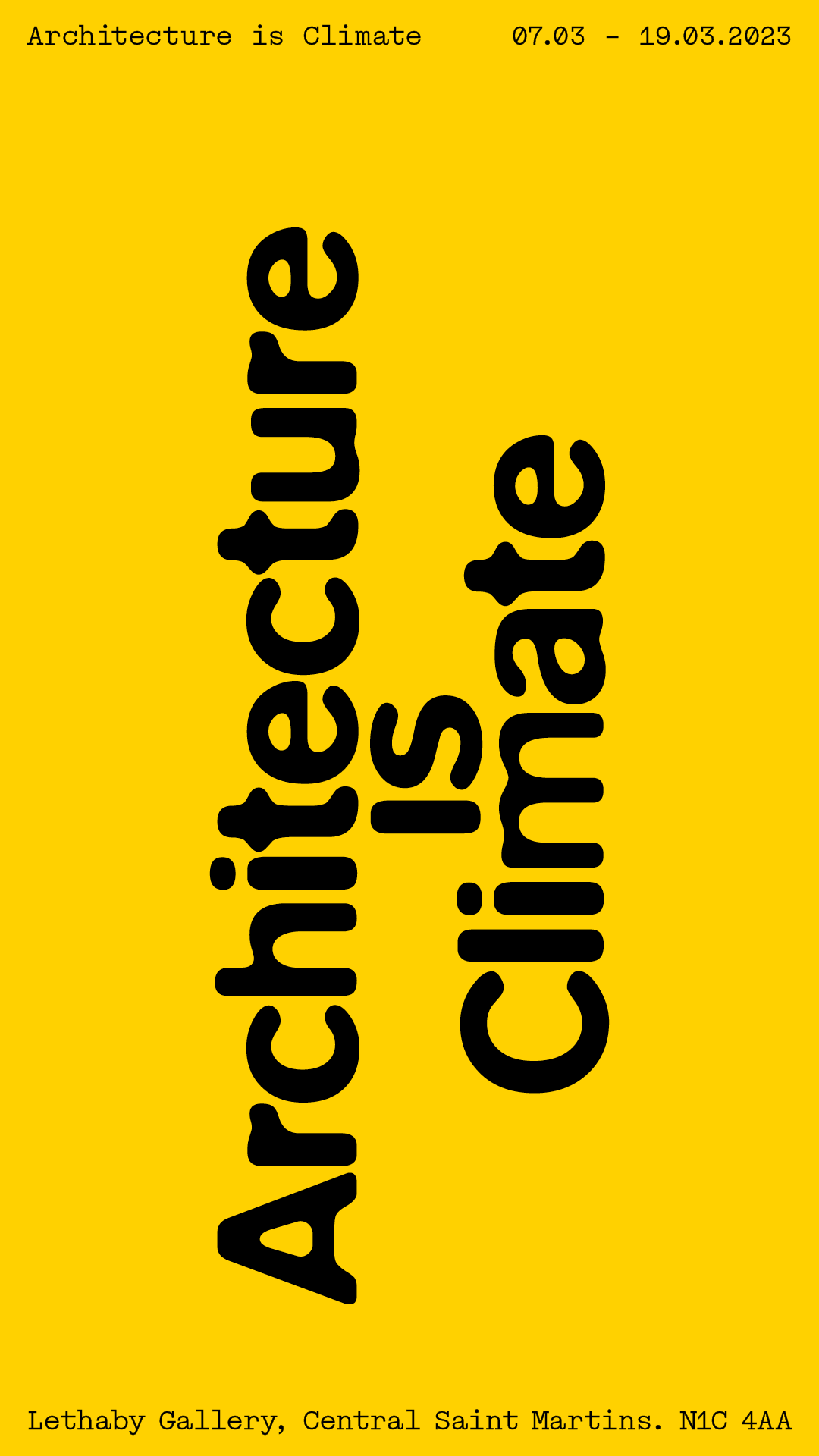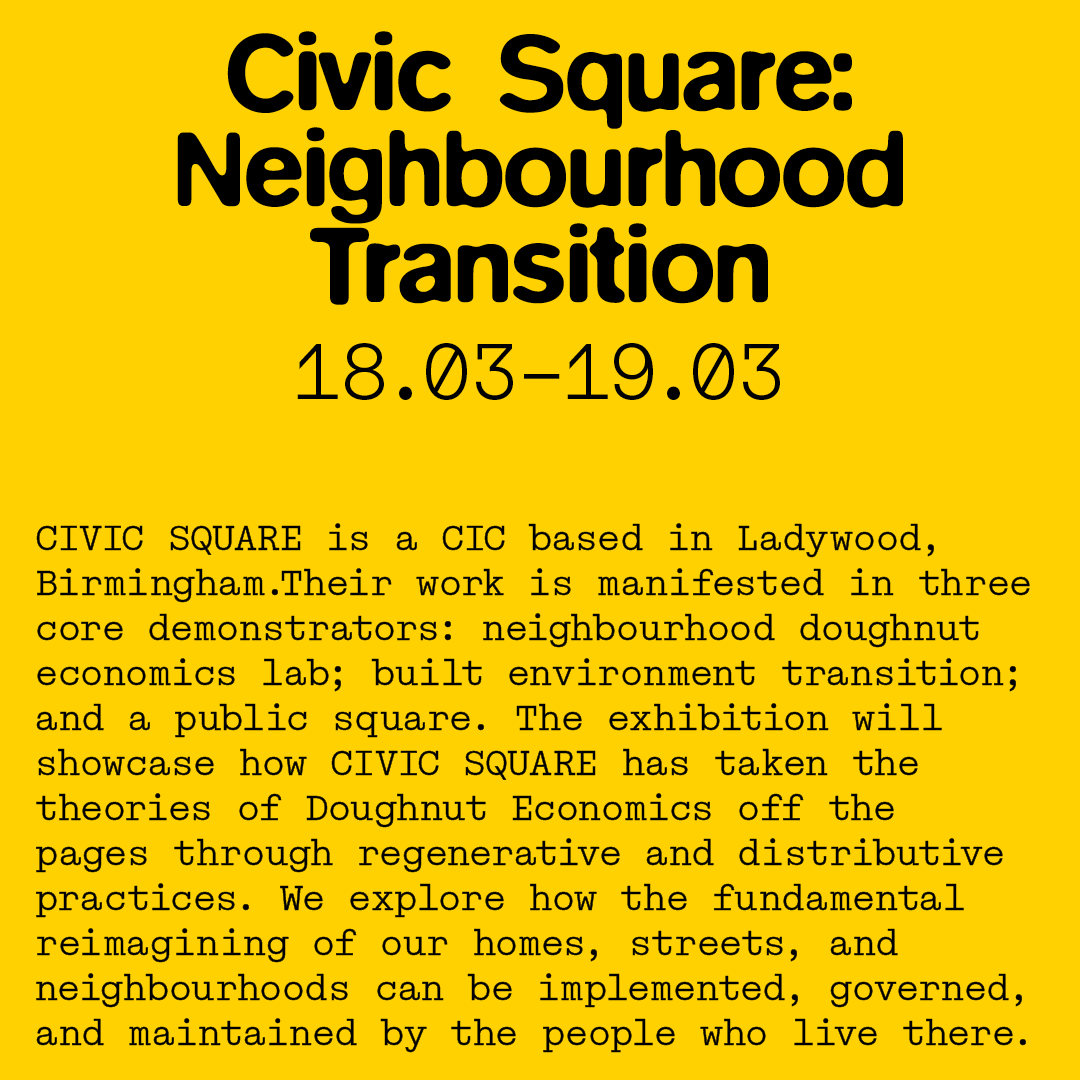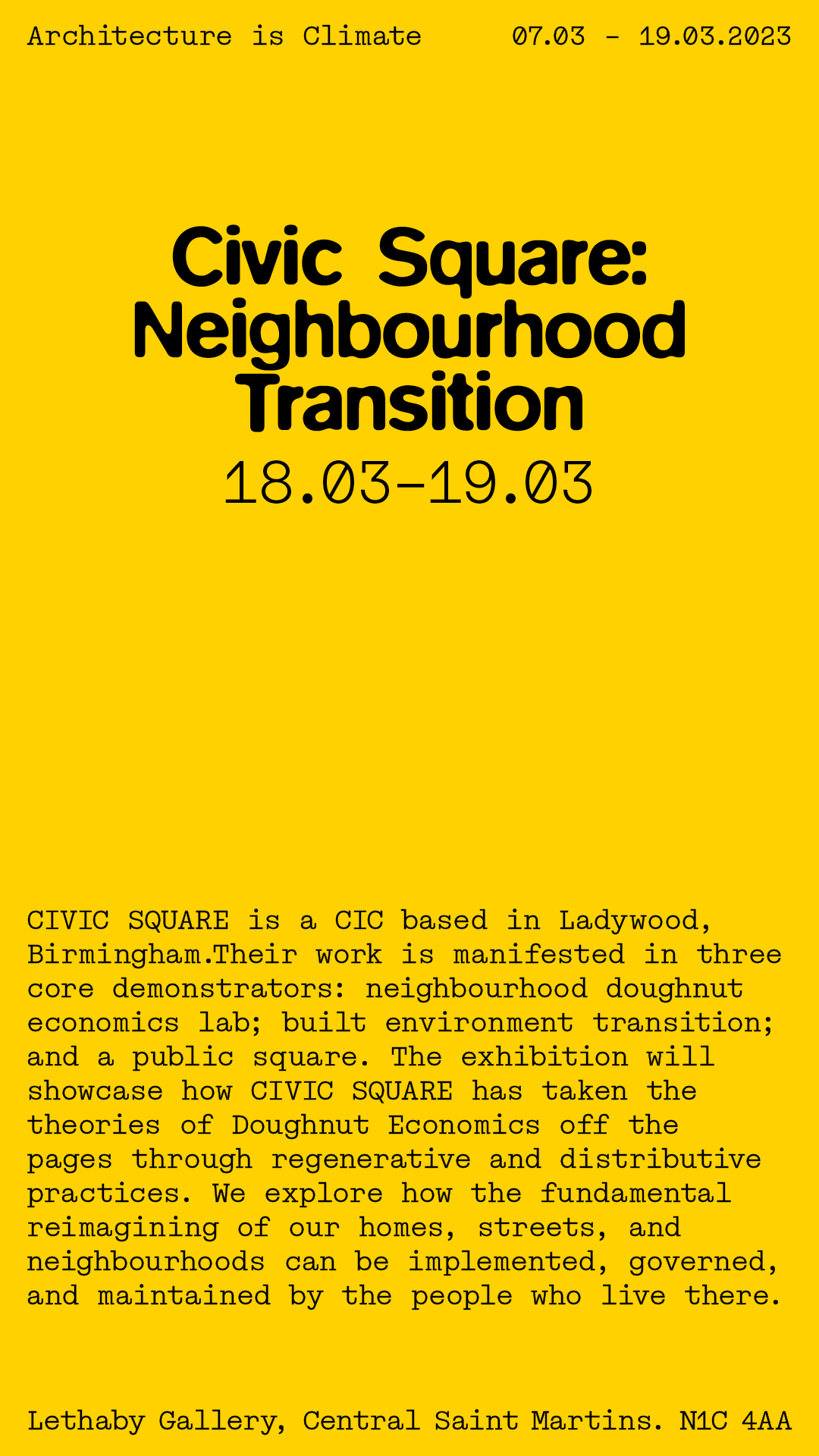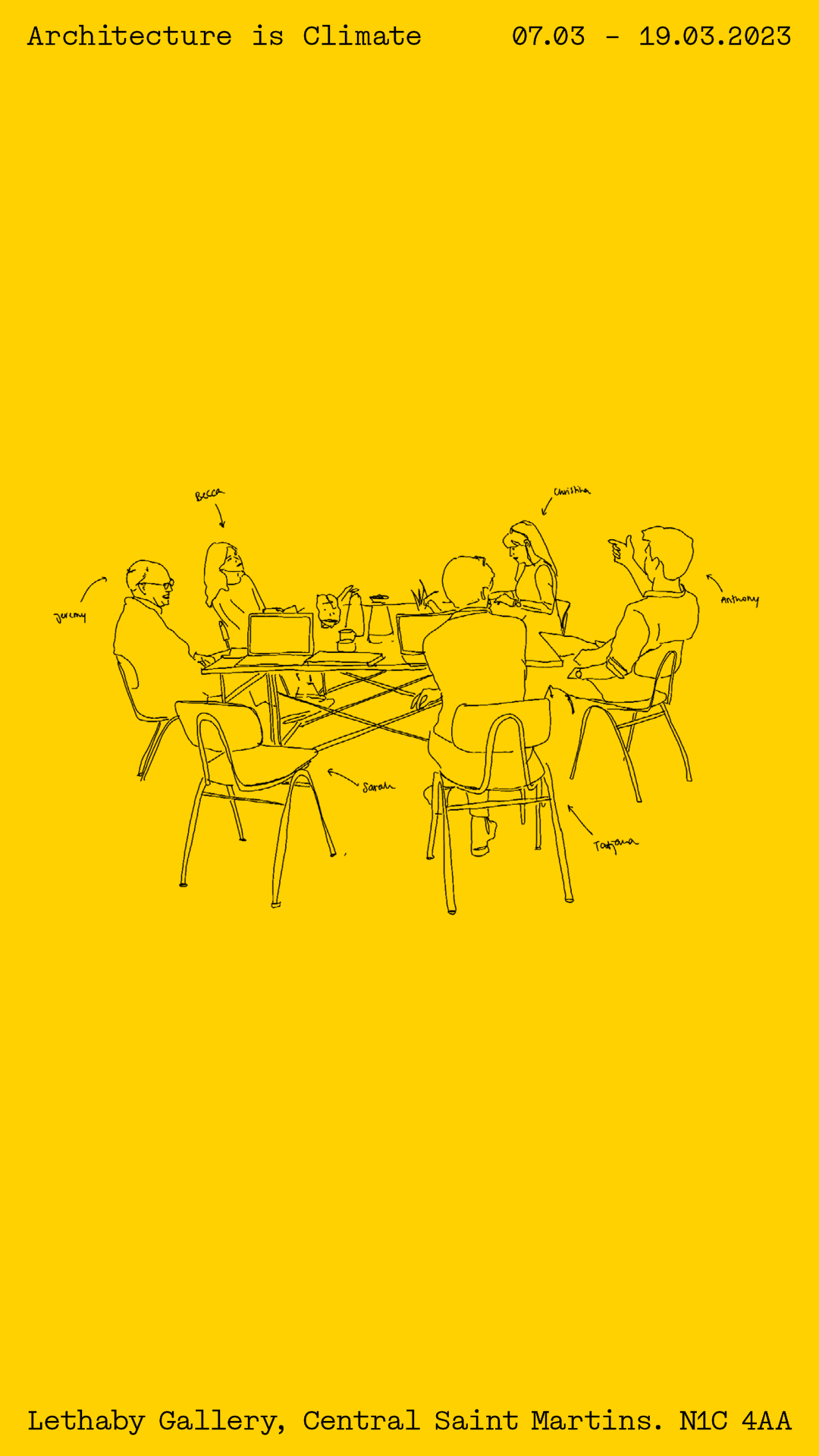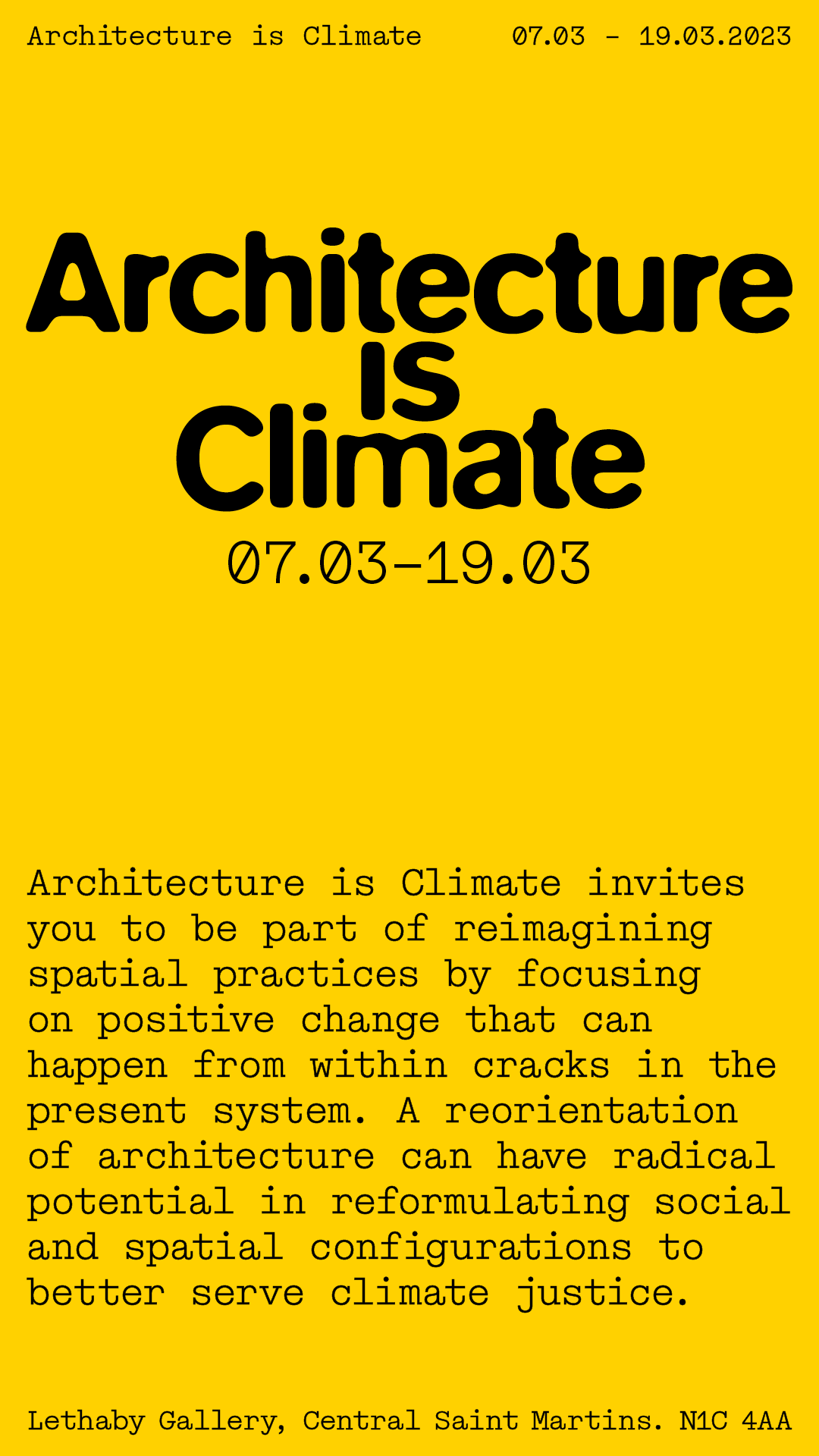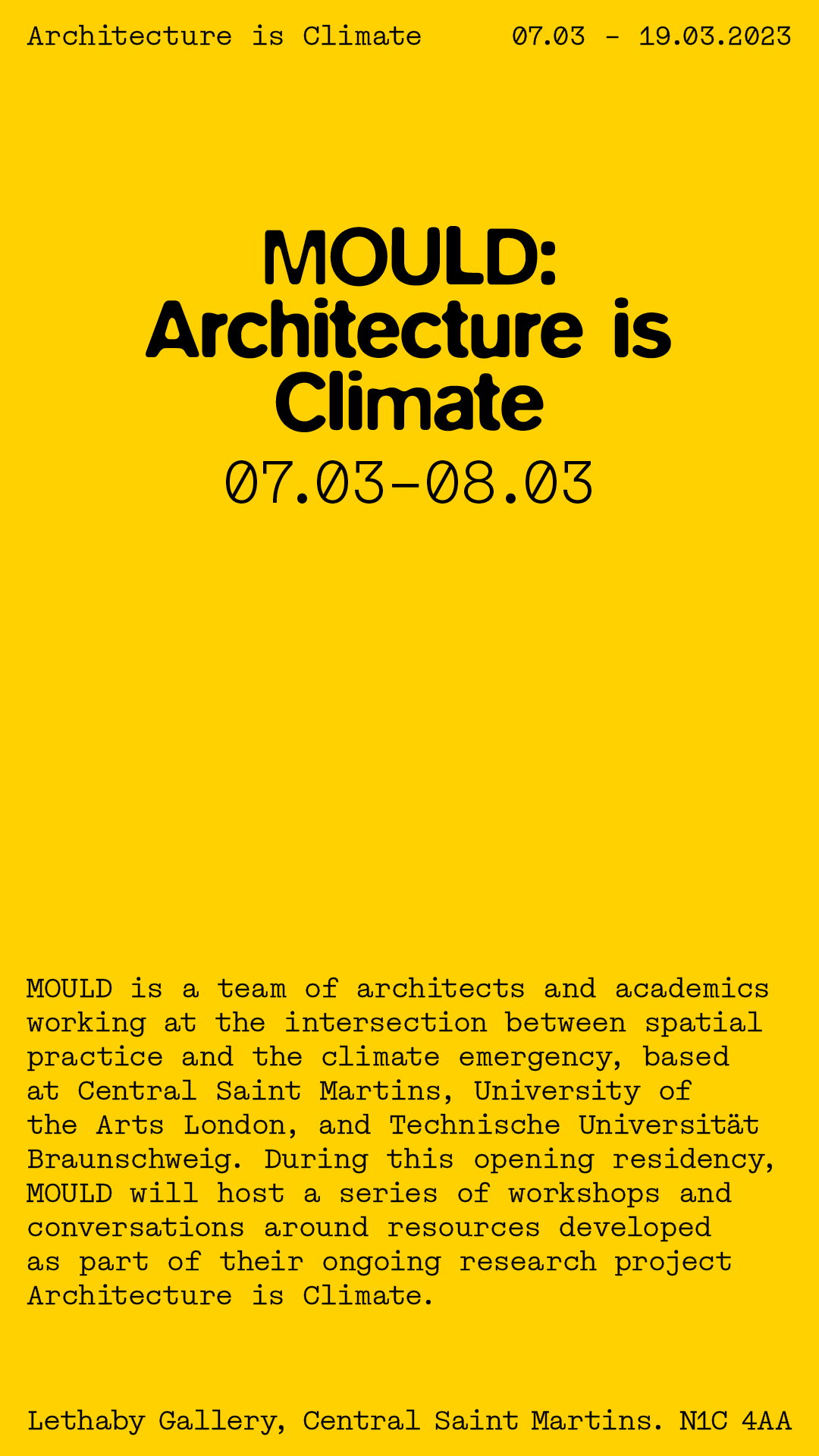Architecture is Climate
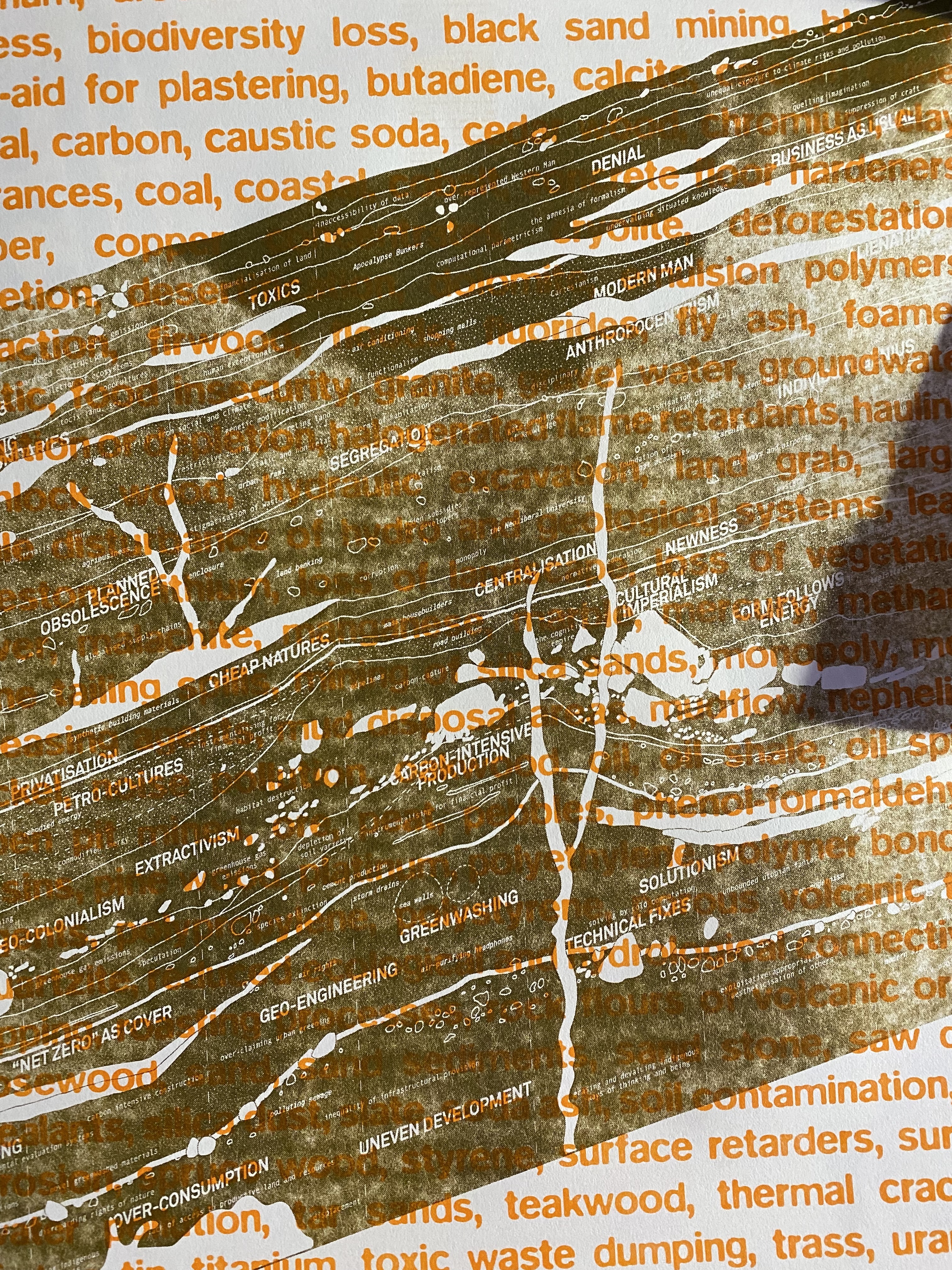
Too often seen as an answer to spatial problems, architecture is in fact entangled in both the causes and symptoms of these problems, primarily the story of climate breakdown. The conditions and urgencies of climate collapse beg us to reinvent our systems of architectural production.
Architecture is Climate is a programme of residencies in the Lethaby Gallery by architecture research collective MOULD in collaboration with Soft Agency, Climate and Cities, Anthropocene Architecture School, and Civic Square. It begins by tracing architecture’s relationship with the causes of climate breakdown. In particular, it argues that architecture needs to address its reliance on extractivist practices that propel climate breakdown. An evolving programme of interventions and workshops proposes ways in which architecture might become part of the wider systemic change that puts climate first.
Architecture is Climate invites you to be part of reimagining spatial practices by focusing on positive change that can happen from within cracks in the present system. A reorientation of architecture can have radical potential in reformulating social and spatial configurations to better serve climate justice. To say that architecture is climate means that other possible architectures are also other possible climates.
MOULD: Architecture is Climate | 7-8 March
MOULD is a team of architects and academics working at the intersection between spatial practice and the climate emergency, based at Central Saint Martins, University of the Arts London, and Technische Universität Braunschweig. During this opening residency, MOULD will host a series of workshops and conversations based around resources developed as part of their ongoing research project Architecture is Climate.
Sarah Bovelett, Anthony Powis, Tatjana Schneider, Christina Serifi, Jeremy Till, Becca Voelcker
Soft Agency: Soot and Sulphur | 9-10 March
Soft Agency invites you to join members Teresa Dillon and Gilly Karjevsky for a two-day exploration through tales of soot and sulphur, practically working with mineral deposits and walking urban routes that resonate with the history of coal in London. Drawing inspiration from a lump of sea coal found on the banks of the river Thames, this intervention weaves stories of energy, matter, labour, trade and pollution, to questions of “green” transitions and post fossil fuel worlds. Outcomes of the exploration will be left as a trace in the Lethaby Gallery for the duration of the exhibition.
Teresa Dillon, Gilly Karjevsky
Climate and Cities: Materiality of Networks | 11-12 March
Climate and Cities presents an exploration into the networks of Kings Cross throughout history—from the coal-and-rail powered industrial revolution of the 1850s to the ephemeral nature of the Information Age we inhabit today. By focusing on the materiality of these networks and their environmental impact, they aim to gather insights into potential future forms of network infrastructure. Climate and Cities invite visitors to journey through these snapshots of history and join them in asking and imagining: what will the nature of connection in King's Cross be in the future?
Rebecca Lardeur, Kshitija Mruthyunjaya, Sepideh Noohi, Milly Shotter, Léa Silvestrucci, Alexander Taylor
Anthropocene Architecture School: Unlearning Powerlessness | 14-15 March
The Anthropocene Architecture School reimagines the Lethaby Gallery as its momentary infrastructure for learning, reflecting, sharing, and unlearning (like the house truly is on fire). The School’s themes of agency, climate literacy, entanglement, and the radical imagination shall be explored throughout a programme of collaborations and workshops; together reconciling architectural education with the reality of the world that we live in, and envisioning the role educating and (un)learning can play in catalysing a just transition.
Scott McAulay
CIVIC SQUARE: What is - What if - So What? | 18-19 March
CIVIC SQUARE is a CIC based in Ladywood, Birmingham, working through the neighbourhood as a unit of change to create the civic infrastructure for a just transition. Their work manifests in three core demonstrators: neighbourhood doughnut economics lab; built environment transition; and a public square. This two-day residency will showcase how CIVIC SQUARE has taken the theories of Doughnut Economics off the page through regenerative and distributive practices. Manifesting in a neighbourhood transition, we explore how the fundamental reimagining of our homes, streets, and neighbourhoods can be implemented, governed, and maintained by the people who live there.
Daniel Blyden, Khadijah Carberry, Charlie Edmonds, Kavita Purohit
